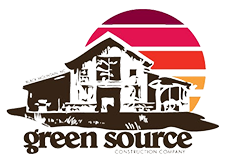Green technology is now a key component of contemporary house remodeling and design due to the movement toward sustainable living. Solar thermal systems have become a trendy and affordable option among the many environmentally friendly technologies available for utilizing solar energy. This blog examines the many benefits of solar thermal systems, showing why they are an intelligent investment for households looking to save money over the long run and lessen their environmental impact.
What Are Solar Thermal Systems?
Instead of producing electricity, solar thermal systems use the sun’s energy to create heat. Their operation mechanism involves absorbing solar radiation and transforming it into thermal energy, which can be employed for space heating, water heating, or even cooling. The following are the principal parts of a solar thermal system:
Solar Collectors: These units, mounted on rooftops or other sun-exposed surfaces, absorb sunlight and turn it into heat. The two main varieties are flat-plate collectors and evacuated tube collectors.
Heat Transfer System: To collect heat and transfer it to the home’s water tank or heating system, this system pumps a heat transfer fluid—typically a combination of water and antifreeze—through the collectors.
Storage Tank: The heat gathered is kept in a tank for later or instant usage. This guarantees a continuous flow of heated water or heating even in the absence of sunlight.
Advantages of Solar Thermal Systems
1. High Energy Efficiency
The outstanding energy efficiency of a solar thermal system is among the strongest arguments in favor of purchasing one. Up to 70–90% of the solar energy that solar thermal systems absorb can be converted into proper heat. In comparison, the efficiency of solar photovoltaic (PV) systems is often between 15 and 20%.
Due to solar thermal systems’ excellent efficiency, homeowners can significantly lower the energy they use for heating. Because of its efficiency, there is a decreased need for conventional energy sources like electricity, gas, or oil, which results in lower energy costs and a smaller carbon footprint.
2. Cost Savings
Purchasing a solar thermal system can save a significant amount of money over time. By utilizing free solar energy, homeowners can reduce their reliance on traditional energy sources and, consequently, their utility costs.
Installing a solar thermal system can be expensive initially, but the savings are usually more significant in the long run. Many households see a return on investment in 5 to 10 years, depending on several variables, including the size of the system, the local energy rates, and the available incentives. Solar thermal systems are a prudent investment for both now and future financial rewards since they can also raise a home’s resale value.
3. Environmental Benefits
Solar thermal systems have several environmental benefits. These systems lessen the demand for fossil fuels by harnessing solar energy, which lowers greenhouse gas emissions and other pollutants. In addition to helping to create a cleaner, healthier environment, this carbon emission reduction is essential in the fight against climate change.
Solar thermal systems also lessen the demand for non-renewable resources, helping to ensure a future with more sustainable energy sources. By making investments in solar thermal technology, homeowners can directly contribute to lessening their environmental impact and facilitating the switch to renewable energy sources.
4. Low Maintenance Requirements
Solar thermal energy systems are renowned for their dependability and minimal upkeep. Once installed, they usually require little maintenance. Cleaning the solar collectors and inspecting the system for problems are standard routine maintenance components.
Due to their lengthy lifespan—which frequently exceeds 20 years—homeowners can enjoy dependable performance and steady savings with little upkeep. This low-maintenance feature further raises the system’s overall cost-effectiveness.
5. Versatility in Application
Modern dwellings may utilize solar thermal systems for various purposes due to their versatility. Typical applications include the following:
Domestic Hot Water: Solar thermal systems effectively heat water for domestic tasks like laundry, dishwashing, and showering.
Space Heating: The requirement for traditional heating sources can be decreased by integrating these systems with already-installed heating systems to offer primary or supplemental space heating.
Cooling: In certain situations, solar thermal systems can be powered by cooling systems, offering a sustainable way to keep rooms at appropriate temperatures.
6. Energy Independence
By utilising solar energy, homeowners can become more energy independent and less reliant on outside energy sources. Solar thermal systems enable homes to produce their own heat, offering a dependable and independent way to satisfy their energy needs.
This enhanced energy independence can be especially helpful when energy prices are volatile or supply interruptions occur. By switching to solar energy, homeowners can enjoy more control over their energy consumption and lessen the impact of growing energy expenses.
7. Government Incentives and Rebates
Numerous state and local governments provide incentives, refunds, and tax credits to promote the use of solar thermal technology. Thanks to these incentives, a solar thermal system may be installed for much less upfront, increasing affordability and accessibility for homeowners.
These programs differ depending on where you live, so it’s essential to find out what incentives are offered there and take advantage of any financial assistance that can help defray the initial cost.
Conclusion
Solar thermal systems represent a powerful and sustainable technology for modern homes. They offer a range of benefits that extend from energy efficiency and cost savings to environmental impact and versatility. Homeowners can benefit from decreased utility costs, fewer carbon emissions, and greater energy independence by using the sun’s energy.
Solar thermal systems are an excellent option for individuals who want to adopt green technology and positively impact a more sustainable future, especially as the market for environmentally friendly solutions keeps expanding. Consider your alternatives, look into any available incentives, and take the first step towards a more ecologically and energy-conscious home if you’re considering switching to solar thermal energy.
Adopting solar thermal technology is a commitment to a greener planet and a better future for future generations, not just an investment in your house.

